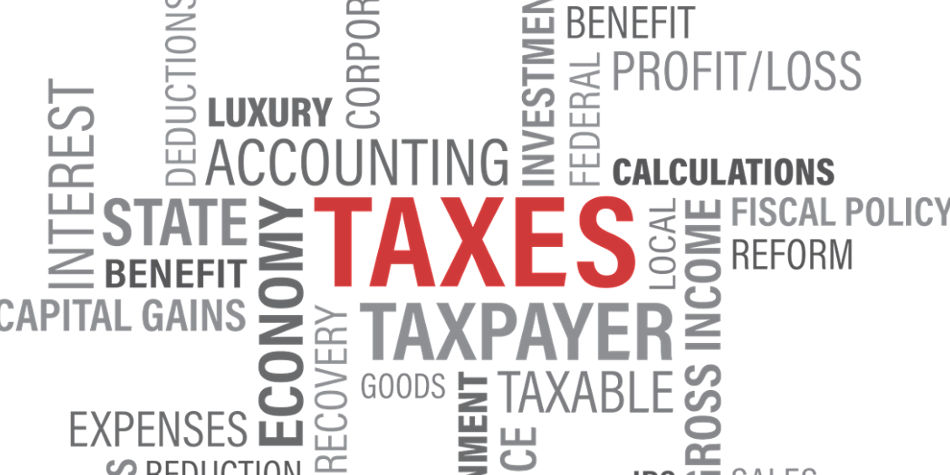Tax return tips and information for individuals in 2018
The start of tax season 2018 has been accompanied by numerous changes, which means that you need to make sure that you have the latest information before you submit. With the shortening of the submission deadlines, you’ll need to submit your tax return earlier than previous years. Read our blog for an overview of individual tax submissions and contact SARS for additional information.

Photo Source – www.pixabay.com
How do I get my tax reference number?
If you’re registered for eFiling, all you need to do is log on and check the Income Tax work page to find your reference number. The SARS Contact Centre can also give you your tax reference number. You will need to provide them with your ID number as they won’t give out your details to anyone else. The only other people who are permitted to access your reference number are your tax practitioner or someone with power of attorney to oversee your tax. Another option is to ask your employer for your number or to visit a SARS branch. The number is also visible on your SARS Notice of Registration.
How much time do I have to submit my tax returns?
Branches opened for tax season 2018 on 2 July and the deadline for manual submissions is 21 September. The deadline for eFiling submissions is 31 October for non-provisional taxpayers and 31 January for provisional taxpayers.

Photo Source – www.pixabay.com
Using eFiling
eFiling adds convenience to managing your tax affairs. You’ll need to be a registered taxpayer to sign up for eFiling and a tax reference number is required to register for this service. Go to SARS eFiling and select register to sign up for this service. Once you’ve completed the steps, it can take up to 48 hours for your registration to be authenticated. After your registration has been approved, all you need to do is visit SARS eFiling and login in.
What changes has SARS made that affects the 2018 tax season?
Tax season 2018 has been accompanied by numerous changes. This year, non-provisional taxpayers have a shorter time to submit their tax returns. Non-provisional taxpayers are people who receive a salary without any additional sources of income. This adjustment allows enough time for tax returns to be verified before the end-of-the-year holidays.
In the past, there were delays in these verifications due to taxpayers having to reply to questions from SARS over the busy festive season. The shortened deadline has ensured that SARS is using their resources efficiently. This year you have 3 weeks less to submit your tax return. Another change that has been implemented is that SARS is sending messages to people who may not be required to submit a tax return according to the information that they provided during the previous year. These messages provide people with information regarding their tax obligations. Further changes have been made to the letters that people receive if their tax return requires verification. These individuals will receive a verification letter that contains a more detailed explanation of the supporting documents they need to submit. This change aims to optimise the efficiency of the verification process. SARS is promoting eFiling this year by offering additional support for this platform. If you decide to use eFiling to submit your tax return, you’ll receive online assistance from contact centre staff. The focus on the use of eFiling will extend to tax practitioners who will be asked to submit tax returns online rather than at a branch. The returns that are filed this year will be dealt with first before outstanding returns are attended to.

Photo Source – www.pixabay.com
Clever tips when it comes to tax
You can save money on tax by investing in retirement annuities. Another option is to lower your personal estate by donating to your family trust as each taxpayer is permitted to donate a maximum of R100 000 per year. To decrease the taxation of trusts, the money should be distributed to its beneficiaries within the tax year. Put your savings in a tax-free investment account to enjoy financial benefits without having to pay dividends tax. It’s advisable to contact your financial planner to receive detailed tax saving tips.
What happens after you’ve filed your tax returns?
Once you submit your tax return, there are three possible outcomes. Your tax return may be processed without SARS completing an audit or verification. If your return is not selected for an audit or verification, your refund should be paid out within 30 business days. If SARS feels that your tax return needs to be verified, they will send you a request for supporting documents. These documents may include medical aid certificates as well as travel logbooks. If your tax return is selected to be audited, it means that SARS wants to check your information in more detail. Any expense claims will need to be supported with invoices so it’s advisable to prepare for the possibility of an audit.

Photo Source – www.pixabay.com
Now that you have a better understanding of the process, you can submit your tax return on time. Contact SARS if you have any queries.







